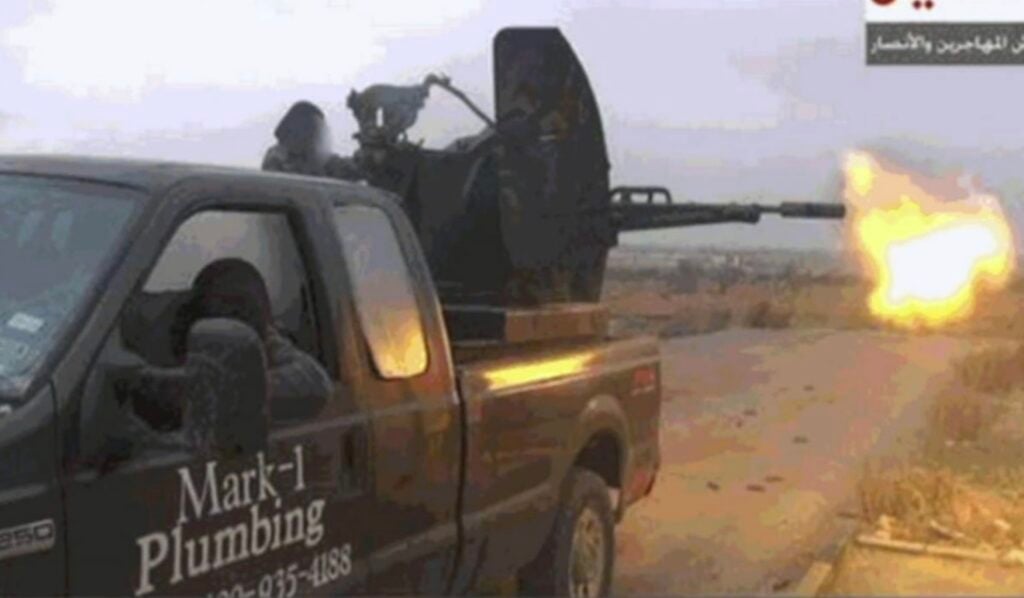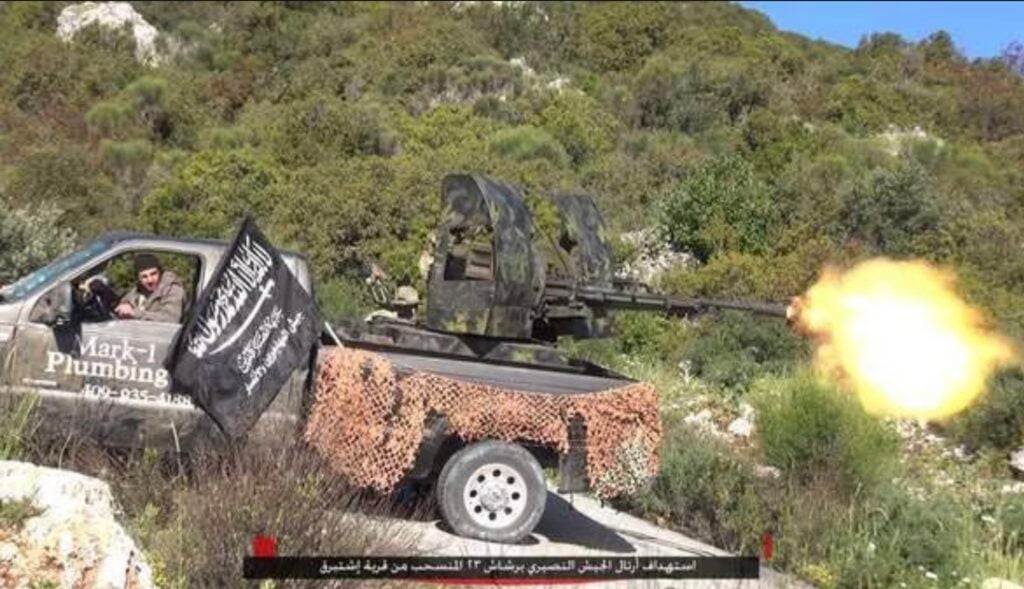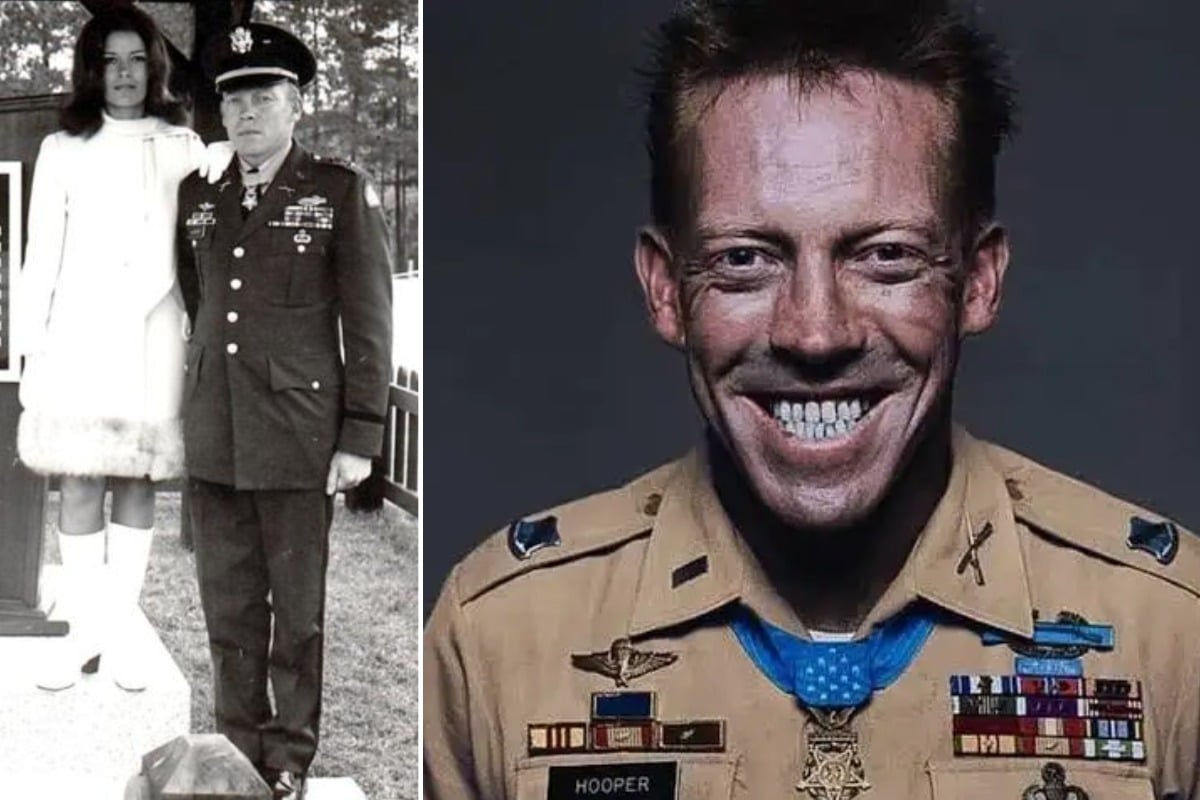It’s 2014. Syria’s burning, ISIS propaganda videos are flooding the internet, and half the planet’s glued to grainy footage of trucks with machine guns welded to the bed.
But this time, one of those trucks wasn’t some beat-up Toyota from the desert.
It was a Texas plumber’s Ford F-250, still rocking the company logo and phone number, now hauling an anti-aircraft gun through the outskirts of Aleppo.
That’s not a metaphor. That actually happened.
From Texas City to the Syrian Front
Mark Oberholtzer, owner of Mark-1 Plumbing down in Texas City, traded in his 2005 Ford F-250 at a Houston AutoNation dealership in 2013. He says he told them to remove the company decals — but someone at the dealership told him not to, claiming they’d handle it.
They didn’t.
The truck went straight to auction, then to a local dealer, then onto a ship bound for Turkey — part of the massive gray market of American work trucks that end up overseas. By December 2014, that same rig rolled into Syria, now sporting an anti-aircraft gun in the bed and fighters from Ansar al-Deen or Jaish al-Muhajireen wal-Ansar riding shotgun.

And the decals? Still there. “Mark-1 Plumbing, Texas City, TX.”
Right under the gun mount.
The Internet Explosion
When the image hit Twitter and jihadist forums, it spread faster than a bad deployment rumor. Within hours, Oberholtzer’s phone lit up. His business line, personal phone, and even family members’ numbers got blasted by trolls, pranksters, and straight-up lunatics.
More than a thousand calls came in within a single day. Federal agents showed up at his shop. Oberholtzer shut down temporarily and started carrying a sidearm. The FBI wanted to know what the hell happened. So did every customer who saw his truck on TV, being used to shoot at God-knows-who.
The War in the Background
This was December 2014 — early in the U.S. campaign against ISIS. American aircraft had just started pounding targets in Syria. On the ground, special operations teams were quietly filtering in — Green Berets, JSOC units, maybe a few Rangers and intel types — training and advising local partners in the chaos.

Most Americans didn’t know it, but there were already U.S. boots in limited roles near hot zones like Aleppo and Raqqa.
These were the kinds of operators who lived in the shadows, navigating a battlefield with too many flags, too many militias, and too much guesswork.
So picture this:
You’re a U.S. advisor somewhere outside Aleppo.
You see a black F-250 barreling through the dust — anti-aircraft gun welded to the bed, Arabic writing on the door… and in big white letters, “Mark-1 Plumbing, Texas City, TX.”
Your brain short-circuits.
“Why the hell are American vehicles being supplied to the enemy?”
That’s the kind of question that makes your stomach drop. Because in that moment, you don’t know if it’s friendly, captured, or some nightmare black-market crossover.
It’s not hard to imagine U.S. troops looking through binoculars, thinking,
“Are we about to get shot at by a goddamn Texas plumber’s truck?”
Lawsuit and Fallout
Back home, Oberholtzer filed a lawsuit against AutoNation in December 2015 for negligence and misrepresentation, claiming more than $1 million in damages. The dealership denied wrongdoing, saying they just sent the truck to auction and assumed the decals would be removed.
By late 2016, the case was quietly settled — confidential terms, dismissed with prejudice. No winners, no losers, just a small-town plumber forever linked to a global punchline.
Oberholtzer now personally removes every sticker and scrap of branding before selling any company vehicle. He’s told other small business owners to do the same. Because in a world where a truck can go from your driveway to a war zone in six months, you can’t take chances.
The Mark-1 incident became a weird case study in globalization, viral media, and the absurd reach of modern warfare. It showed how everyday American products — tools, uniforms, trucks — flow into conflict zones through a web of middlemen, auctions, and exporters.
But to those who’ve worn a uniform, this story hits different.
It’s not just funny or ironic — it’s infuriating. Because we’ve all seen it before.
American hardware, weapons, Humvees, and yes, even plumbing trucks — ending up in enemy hands.
For the troops on the ground, that’s not a meme. That’s a gut-check moment.
Because nothing makes your blood boil faster than watching the enemy drive your gear, your trucks, or your tax dollars against you.
Mark Oberholtzer didn’t mean to get tangled up in the Syrian civil war. He didn’t sell a truck to the bad guys. He just trusted the wrong dealership and ended up starring in jihadist propaganda.
But for the rest of us — especially those who’ve fought in places where American gear gets turned against Americans — his story hits home.
Sometimes, the enemy doesn’t need to steal your weapons.
They just need you to leave your logo on the side.
© 2025 The Salty Soldier. All rights reserved.
Reproduction without written consent is strictly prohibited.




